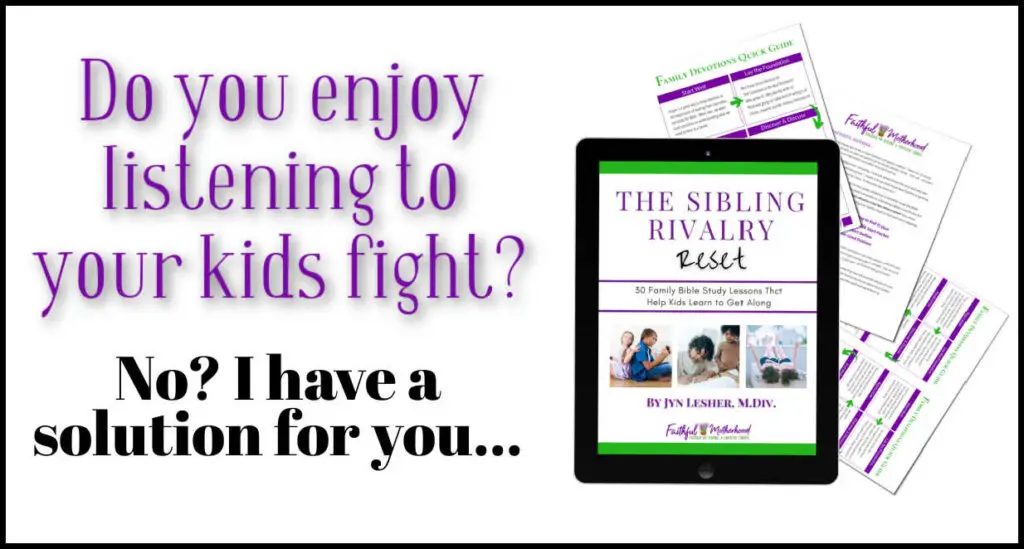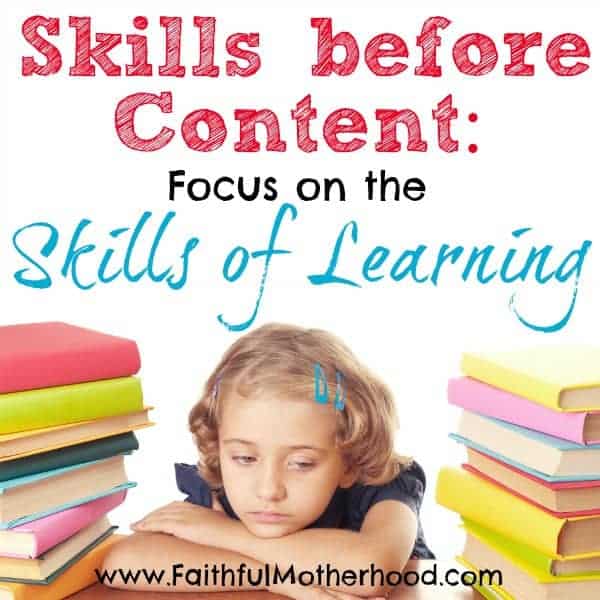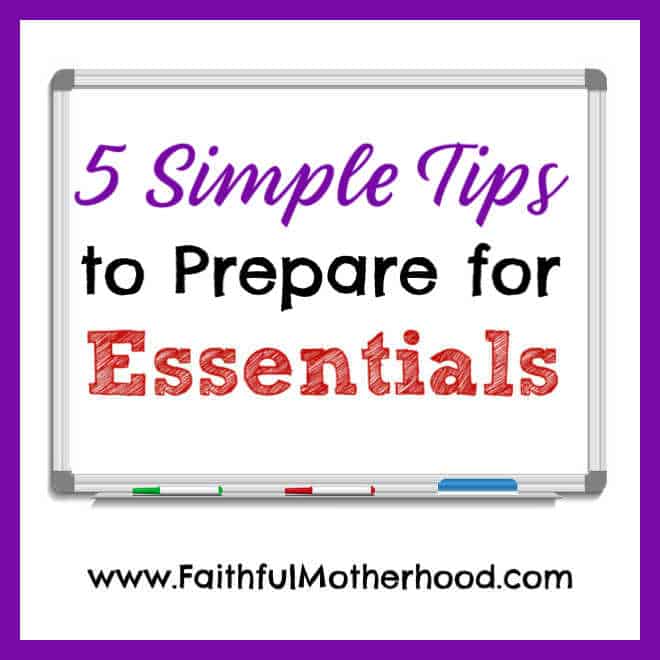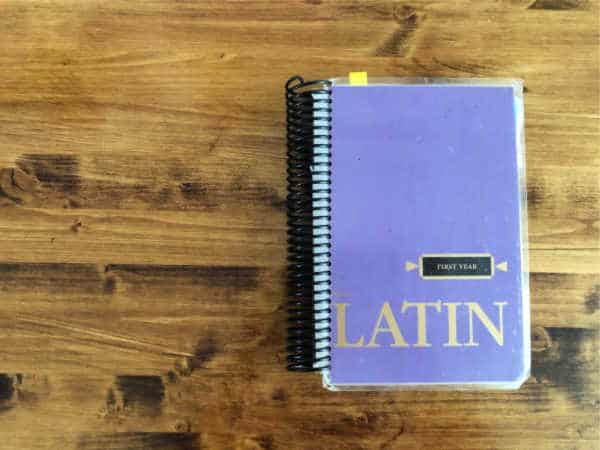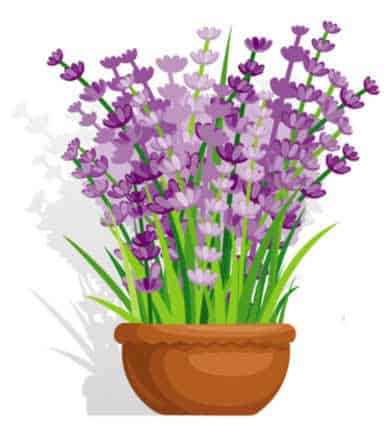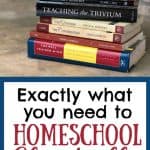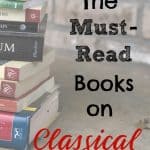When you decide to homeschool, the next decision is always about what curriculum you are going to use. This classical reading list can help you quickly understand classical education.
There are many different approaches and styles for homeschooling, and the curriculum you choose will naturally flow from those choices. One of the biggest surprises for so many families is that there are many different ways to approach school other than what the public schools use!
For some, it is the first time that they realize that the ideas about modern education found in the public school system are but ONE educational philosophy and that there are many other successful methods of teaching out there.
After investigating the different options, my family chose the classical education path. Classical education is very different both in content and approach to what I learned in public school.
To be an effective home educator, I need to retrain my brain on how to teach classically. This Christian Classical Mom’s Reading List is exactly what you need to understand the beauty and powerful impact of classical education, along with practical advice on how to implement it with your students.
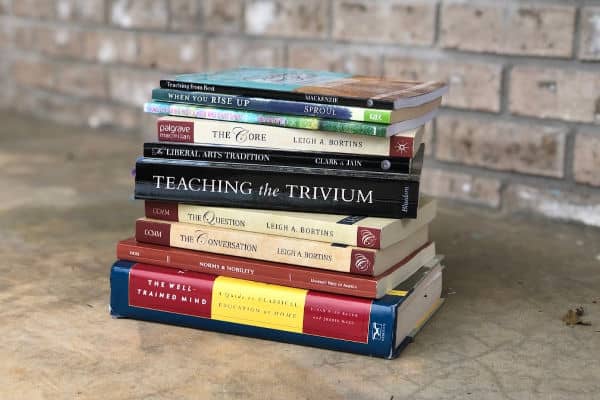
Classical Education is a time-test method passed down through the centuries. Most of the greatest leaders throughout history were classically educated.
Classical education isn’t just about the subjects taught, but rather a philosophy about 1.) how people learn 2.) how to teach people to think clearly and logically and 3.) equipping students with the tools of learning so that they can teach themselves.
These critical components do not just produce well-educated students, but also seek to cultivate the heart and soul of the person.
Related Post: 4 Skills of Learning You Need to Focus on in Your Homeschool
Are you exploring Classical education? Are you wanting to grow as a classical educator? This Christian Classical Mom’s Reading List will help you retrain your brain and heart to the classical method.
For many of us, shaped in the public school system, it will take a while to throw off those ideas about learning and school and to walk the classical path. Classical education isn’t just about school work, but it is a lifestyle of learning and living.
General Books for a Classical Christian Education
Are you just getting started with classical education? Are you overwhelmed and don’t know where to start with homeschooling classically?
These books are the best places to start for anyone wanting to explore classical education. All three texts are short and can paint a quick picture of the need for classical education and a glimpse into how it can be implemented.
General Reading List Book #1: The Lost Tools of Writing by Dorothy Sayers
This piece was the essay that launched a revival in of Christian classical education. Dorothy Sayers was a friend and contemporary of C.S. Lewis and a graduate of Somerville College, Oxford.
This essay lays out the different stages of development in classical education: grammar, dialytic, and rhetorical. The language of the essay is rich and is worth reading several times.
General Reading List Book #2: Echoes in Celebration by Leigh Bortins
This short primer is a wonderful overview of the need for classical education and practical advice on how to implement it at home.
This quick read is a great way to get your feet wet with what a Christian Classical homeschool might look like and includes sample schedules so that you can peel back the curtain and see what Bortins did in her own home.
Much of this information is included in her much more lengthly book, The Core, but this is still an excellent introduction for busy homeschool parents. The PDF of the book is available for free at www.classicalconversations.com. Or, if you prefer, you can order a paperback copy of the book.
General Reading Book List #3: Classical Education Made Approachable by Leigh Bortins
This book is another excellent quick read for busy parents that want an overview of Christian classical education. The book includes an appeal for why not only our children need a classical education but how homeschooling classical can redeem our education as parents as well.
The book talks about each subject area and how to teach it classically. If you want a printed copy of the Lost Tools of Writing, you will find it included in this book as well.
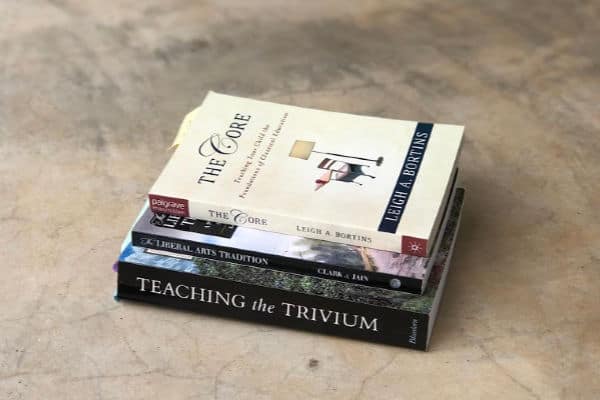
Christian Classical Reading List for Younger Children
Reading List for Younger Children # 1: The Core by Leigh A. Bortins
Expanding on some of the ideas laid out in Classical Education Made Approachable, Bortins lays out how the practical steps of how to run a classical homeschool subject by subject.
This book is helpful for families that participate in Bortin’s homeschool groups called Classical Conversations or for those who are not participating in a Classical Conversations community.
She covers how to teach grammar age students (K-6th grade) classically. The books covers: Reading, Math, Writing, Geography, History, Science, and Fine Arts.
Reading List for Younger Children #2: The Well-Trained Mind: A Guide to Classical Education at Home by Susan Wise Bauer and Jessie Wise
This book will hold your hand through every single grade, guiding you on what curriculum to choose and what you need to cover. For some parents, this can be very comforting, and for other families, this can be stifling.
The volume of the suggested study is significant. This book will equip you with more knowledge about each learning stage, how that applies to each subject, and curriculum choices to help you carry that vision out with your student.
Having a trusted resource to go to for vetted homeschool resources can be very helpful for the busy homeschool mom. The four-year history cycle lists that are updated for each learning stage are handy as well.
In addition to the suggested daily schedules for each level. Even if you don’t follow her model exactly, this book is an outstanding reference book for study suggestions.
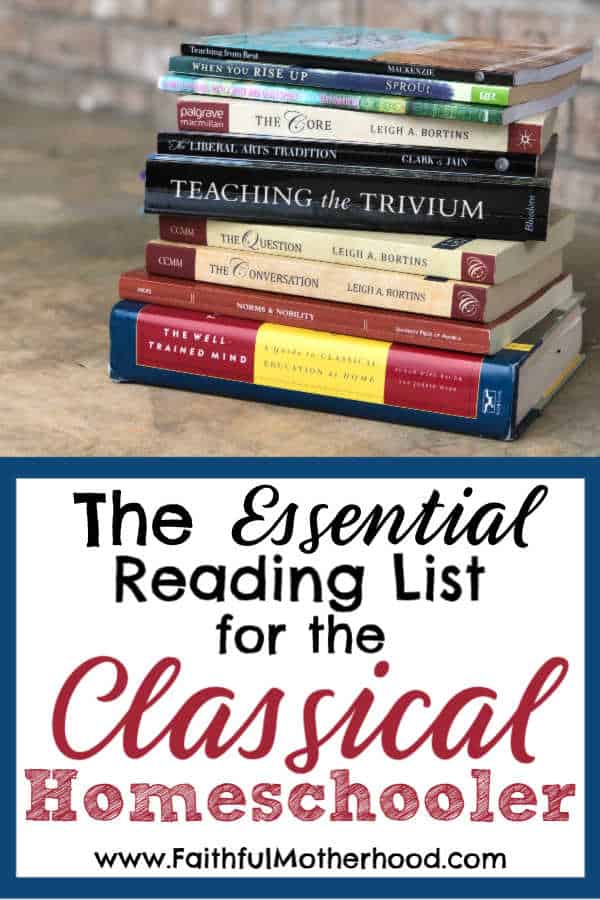
Reading List for Younger Children #3: Teaching the Trivium: Christian Homeschooling in a Classical Style by Harvey & Laurie Bluedorn
This book has a fantastic Table of Contents, which clearly demonstrates the organization and thoughtfulness behind the book. The first four chapters lay a foundation for why we ought to homeschool and the differences between modern education and classical Christian education.
The Bluedorn’s unique take on the stages of classical education is very enlightening. If you ever question why you are homeschooling, you just need to sit down and read the first four chapters of this book again.
The Bluedorn’s lay out a compelling vision for the learning of classical languages, advocating for the learning of Greek, Hebrew, and Latin.
Although all the resources recommended are Christian, Teaching the Trivium is a book that really weaves Scripture and the process of discipleship throughout the book. This book thoroughly covers all stages of classical education and beyond.
I urge parents of younger children to dive into this book not only for the godly vision that it casts but for the freedom is presents for how to homeschool children under age 10. Chapter Eleven of the book is titled: “The Early Knowledge Level: Ten Things to Do Before Age Ten.”
When we are tempted to follow the frenzy of modern education for even the very young, the Bluedorns call us to a more restful education. The rigor of their vision for the latter years lends weight to the argument that they make for the younger years.
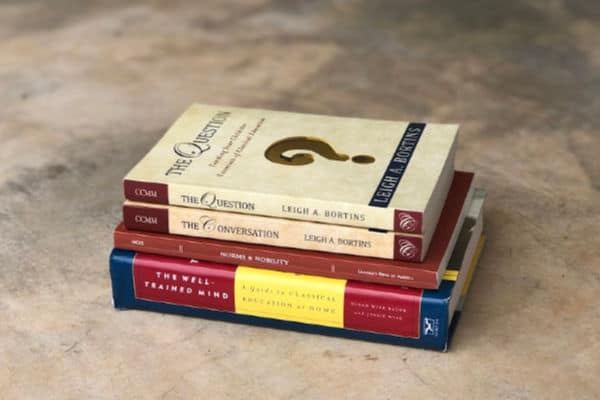
Classical Christian Reading List for Older Children (Middle School & High School)
Reading List for Older Children #1: The Question by Leigh Bortins
The Question focuses on teaching the child that is entering into the dialytic stage. This stage is characterized by the questions for which its youth are known.
Unlike the questions of the very young children, these are questions that are seeking to make connections and make sense of the world around them. Sometimes these questions are ones that question the logic of the world around them.
Usually, this stage begins in the early middle school years. Bortins lays out a vision for parents can approach this challenging stage.
In this book, Bortins lays out a method for how to equip our children, and ourselves, with how to ask good questions. Based on Aristotle’s Topics, the five Common Topics that Bortins introduces are gold!
These valuable questions are the workhorses of teaching our children to think carefully and thoroughly about a subject. Then, Bortin goes through every subject and gives practical advice on how to live these questions out in each core subject, including Fine Arts.
Reading List for Older Children #2: The Conversation by Leigh Bortins
The Conversation is the next logical step after your student learns how to ask good questions and engage in thoughtful conversations. This book focuses on the Rhetorical stage of learning as the students move into the high school years.
The High School years can be the years that families chicken out and send their students back to a traditional school setting. Sadly, they miss out on the fruit of all the years that have gone before.
These are the years in which our children are blossoming into adults and their conversations are bear fruit to all of the truth, beauty, and goodness that we have tried to point them to all the preceding years.
Bortins lays out a vision for confidence to navigate these years. In these years, we layer on top of the five common topics, the five canons of rhetoric. We are preparing our students not just to know Truth, but to winsomely communicate that Truth to others.
Once again, Bortins holds our hands and walks us through each core subject. She gives examples of how to have rich, engaging conversations that help our children flourish in this rhetorical stage.
Reading List for Older Children #3: Norms and Nobility: A Treatise on Education by David V. Hicks
This book is unique in this list for its focus is not on the classical homeschool but the classical private school.
The book is divided into two main sections. The first section speaks about the “Idea of Classical Education.” This section is a challenging read, but it is worth the time to wrestle with the lofty ideas and dense language.
At each stage in our child’s learning, we, as educators, need to be refreshed with a noble vision and understanding of the impact of classical education. The history that Hicks shares about the point at which Classical Education almost becomes the standard education for the average person in the United States and then lost to the progressive education movement – is a powerful moment of loss.
Yet, he gives hope for the reclaiming of the heritage that classical education can have not just for individuals but for our society.
The second half of the book is titled: “The Practice of Classical Education.” Although these pages lay out the course of study for a classical brick and mortar school, these readings and curriculum suggestions are invaluable for the home school.
Starting with seventh grade and going all the way through high school, Hicks outlines a syllabus for each grade. The reading lists can be a great jumping-off point for the construction of one’s own reading list or ideas for supplementing another reading list.
One unique inclusion is the list of suggested items for memorization each year. Suggestions include poetry, scripture, and plays.
Usually, in classical education circles, memorization is something that we focus on in the younger years. Hicks’s inclusion reminds us of the life-long importance of memorizing important pieces of literature for how they shape our minds and hearts.
This is a pricey book, but it has tremendous value.
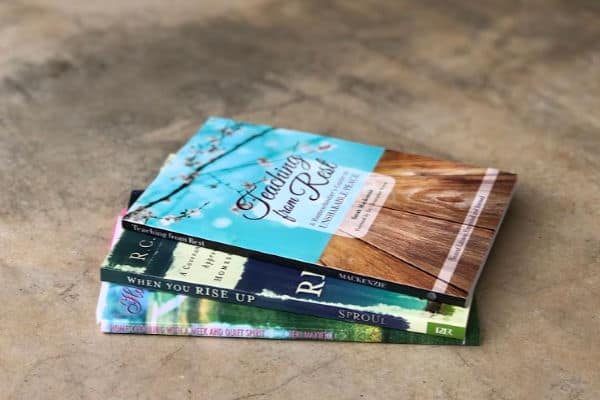
Classical Reading List For Mom
Reading List for Mom #1: Your Bible
The Bible is the best time-tested classical book that instructs us on the ultimate source of goodness, truth, and beauty. Within its pages are invaluable advice on what we should teach our children and how.
The wisdom in its pages educates the hearts, souls, and minds of our children and ourselves. All of our learning should point us back to God!
“The fear of the LORD is the beginning of wisdom, and knowledge of the Holy One is understanding.” – Proverbs 9:10 NIV
The focus of modern education is on man himself and on producing workers for our economy. True education teaches us about God and puts us in right relationship with him.
As home educators, we are not producing workers for the world but citizens of Heaven and workers for the Kingdom. The foundation for this work is laid in Bible study and prayer.
“A thorough knowledge of the Bible is worth more than a college education.” Theodore Roosevelt
Reading List for Mom#2: Teaching From Rest by Sarah Mackenzie
This book is a favorite among all kinds of homeschoolers who follow very different approaches. In fact, this is not a book on classical education. However, it is a book that calls us to slow down and trust in God as the ultimate teacher.
Sarah Mackenzie warns us not to get caught up in the busyness of modern education and to focus instead on right relationships with one another. In the introduction, she writes: “The true aim of education is to order a child’s affections – to teach him to love what he ought and hate what he ought.”
The rigor of classical education can become a stumbling block for some families. The goal is not knowledge and intellectual superiority but rather the shaping of the senses, the mind, and the affections to see goodness, truth, and beauty.
The goal is a heart that sees God at the center of all learning and that all true knowledge points back to God. Homeschool moms carry a lot of worries and burdens on our shoulders with the weighty responsibility of discipling the children with whom God has entrusted us.
Teaching from Rest guides us to lay those burdens down before the Savior and to teach from a place of resting in God’s power to guide you and your children.
Where are you going to start your Classical Education journey?
Classical Homeschooling is a journey. It is a process of redeeming two generations of education and cultivating a lifestyle of learning and service to God.
Classical education is the foundation from which God is sending forth young men and women who are trained to recognize goodness, truth, and beauty and to draw others to God. These young men and women are leaders who know how to think and communicate well.
Pray that they will be outstanding ambassadors for Christ that our world desperately needs!
Interested in learning more about Classical Education?
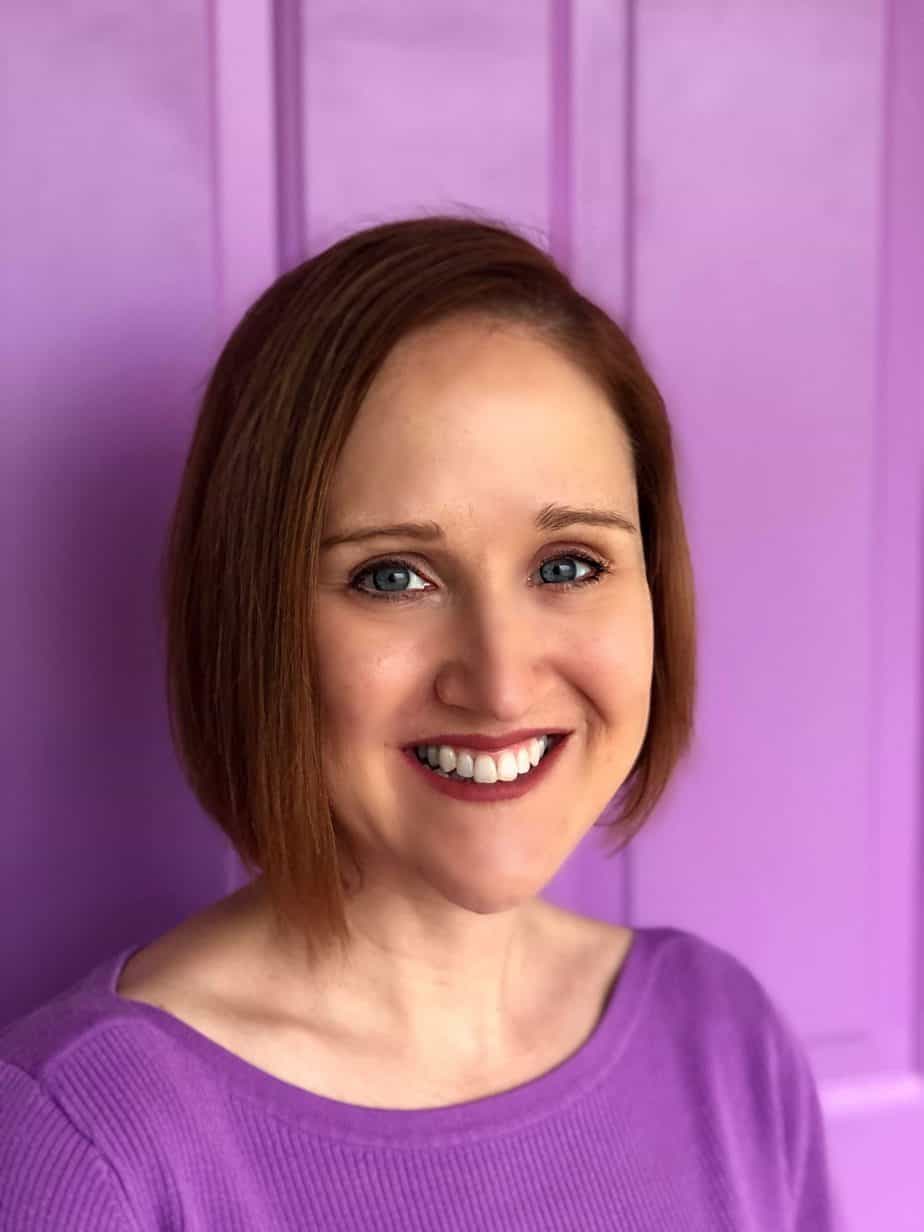
The voice behind FaithfulMotherhood.com is Jyn. She is a veteran homeschool mom of three. More than just a pastor’s wife, she holds a Master of Divinity degree and has served in church leadership for over 20 years. Her passion is equipping parents to live out their calling as the number one faith influencer for their children. She longs to see moms empowered by God’s Word and transferring that love to their children through daily Bible study and family devotions.





